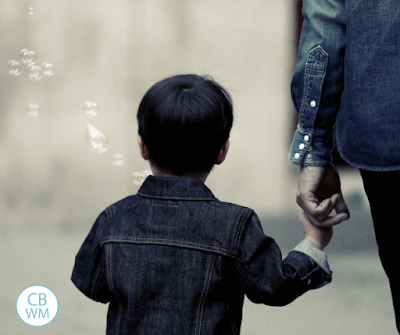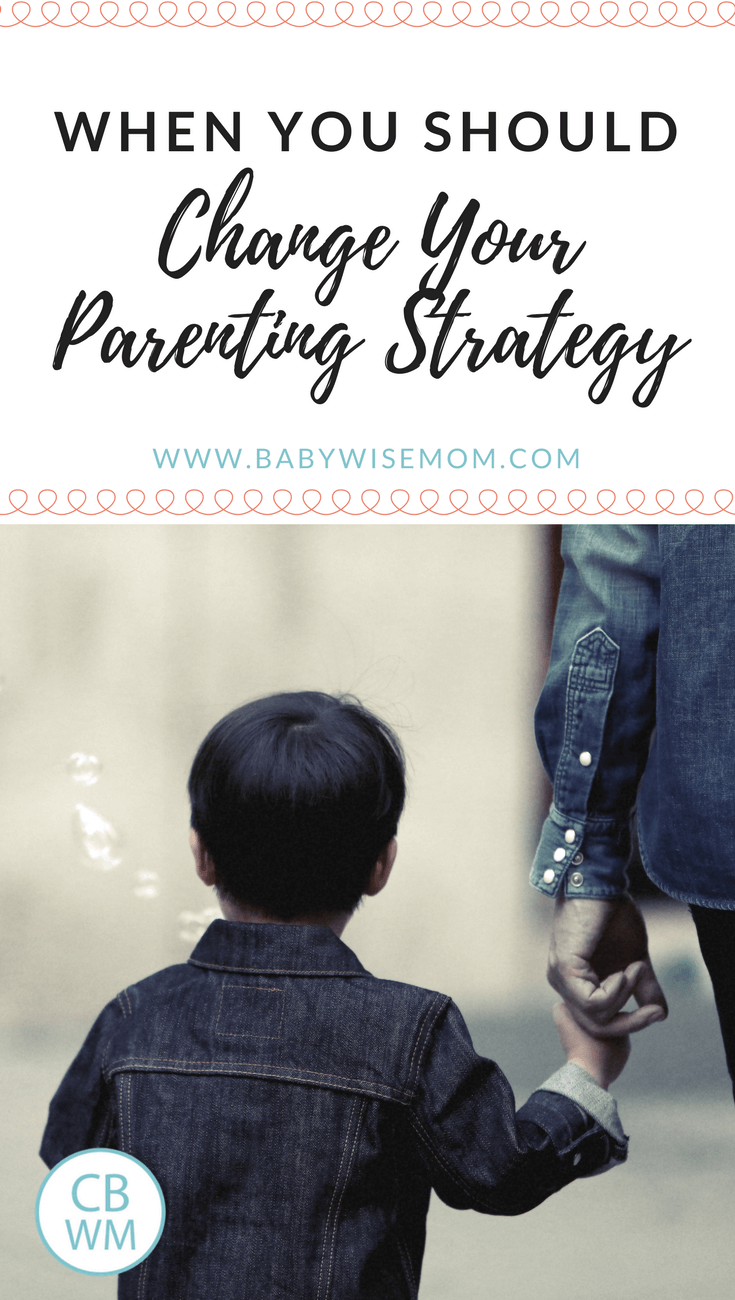Inside: When things aren’t working out in your parenting journey, change your strategy until they do work.

My husband and I really enjoy playing games of strategy. One of our favorites is Settlers of Catan, with the expansions. The board is set up randomly each time so each time you play, it is a different game involving different strategies. You build settlements, cities, and roads among other things to earn points. One night after we finished playing the game with some friends, my husband made an interesting observation. He said when you first start the game, you look at the board and come up with a game plan. You decide where you want to build and which commodities you are going to strive to acquire. As the game progresses, however, other people usually do things like build in your path that interfere with your original plan. If you remain stubborn and stick to your original plan, you are sure to lose. In converse, if you change your strategy to accommodate the new game conditions, you have a good chance of winning the game.
Last week, I was reflecting on my 11 month old daughter’s current schedule. It has changed a bit in the last few weeks (as it often does throughout the first year). I was thinking about her current evening eating schedule and realized I needed to change my strategy with her.
My daughter has always been a big sleeper. She held on to her third nap for a long time. For her, this nap hasn’t even been the short 45-60 minute nap many babies have. It has been a full 1.5 hour nap, only ending because I woke her up. Nothing to complain about. When she was about 9 months old, I decided to start to work with her on dropping the nap. With my daughter, she does better with a “weaning” from naps than a “dropping” of naps. I first gradually shortened the naps down to the 45-60 minutes. My daughter also doesn’t display sleep cues; I have always had to just put her down when it is time to sleep without help from cues. I started keeping her up rather than putting her down unless she was fussy. For her, fussiness is a late sleep cue (for my son, fussiness was his nap cue, for my daughter, it means she is very overly tired). The days she got fussy, the nap was then knocked down to 30 minutes. She slowly started eliminating the evening nap. Some days she needed it, some days she didn’t. At first, days she didn’t nap, we needed to put her down for the night a little earlier than normal. To make a long story a little shorter, she didn’t fully drop the nap until she was 11 months old.
Shortly after the nap was dropped, she got very sick (as did my son and I). We all lost a lot of weight. My daughter has always been a smaller girl. A small girl got even smaller—down to 18.1 pounds as an 11 month old. Once she finally got better and got her appetite back, it came back with a vengeance as I hoped it would. She pretty much ate for a couple of hours straight in the evening (eating finger foods while I cooked dinner, eating finger foods and sharing with me while we ate dinner, then nursing and eating her dinner). This went on for a couple of weeks. I am happy to say she gained her weight back and then some.
She is currently back to a normal appetite and normal meal schedule. My realization about her schedule has come in the form of her eating schedule in the evening. When she was taking the evening nap, her afternoon schedule looked like this:
3:30—nurse
3:45—independent play
4:30—eat finger foods while I made dinner
5:00—free play
5:30—nap
7:00—wake her up and nurse her followed by her dinner

I came to realize I was keeping that snack at the same time, then having her sit and eat dinner with the family at 5:30 instead of taking a nap. During her weight gain marathon, she needed to eat that often. However it hit me that she no longer needs that schedule. She now doesn’t eat finger foods while I make dinner. She waits for that until we are all eating dinner.
I tell you all of that to illustrate that you need to change your strategies with your children on a pretty regular basis. You start with a plan, but then life changes circumstances and your fellow family members might do things that block your path for accomplishing your goal in the way you originally planned.
This is really just another way to focus on why vs. how as discussed in the chapter titled “The Land of Good Reason” in On Becoming Toddlerwise and beyond (incidentally, I love this chapter and think it is very beneficial for parents with newborns on up to read it, understand it, and apply it). Your goals pretty much stay the same (though they are subject to evaluation and change as time goes by). To continue with my game analogy, your goal (the why) is to win the game. The most obvious way to win (the how) is to build settlements and cities, but there are other ways to win. Often times your path gets blocked by other players, making it much more difficult to build. Or perhaps you simply don’t have to resources to build what you need to. If you insist on winning by building settlements and cities, you are likely to lose. But if you change your strategy and build what you can and focus on other, less-obvious methods to win, you have greater chance of doing so.
Your goal is what is important, not your methods to do so. Yes, you keep your methods within the parameters of your moral goals (you want to win but you don’t want to cheat to do so). But there are a lot ways to accomplish the same goal. Don’t put your blinders on and stubbornly insist that your method is the best way to accomplish your goal. Focus on your goal and not your methods, and all of your parenting goals should be easier to accomplish. There are many different strategies available to reach your goals. Each situation is different. Each child is different. You need to be flexible and be ready to change your strategy as situations and people differ. It is impossible to take a “stock” method and apply it to every child.
As Anne Marie Ezzo once shared with me, “The other thing to keep in mind for all – is the proverbial ‘bell curve’ there will always be those on either end of that curve and of course it would be impossible to deal with all of that in one book and is why a blog site like yours is helpful.” Learn the principles and theories (the “why”) of the Babywise series so you can confidently decide what is best for your children. Don’t get caught up in the specific examples in the books. They are there to illustrate principles to you, not to cover every possible scenario that may arise in your child’s life. Understanding the theory will help you to focus on your ultimate goal rather than your methods to achieve that goal. Remember to periodically step back and evaluate your current schedule, goals, and methods of implementation. Make changes where necessary and move forward. Happy parenting!
For help figuring out what might need to change, read this post:
